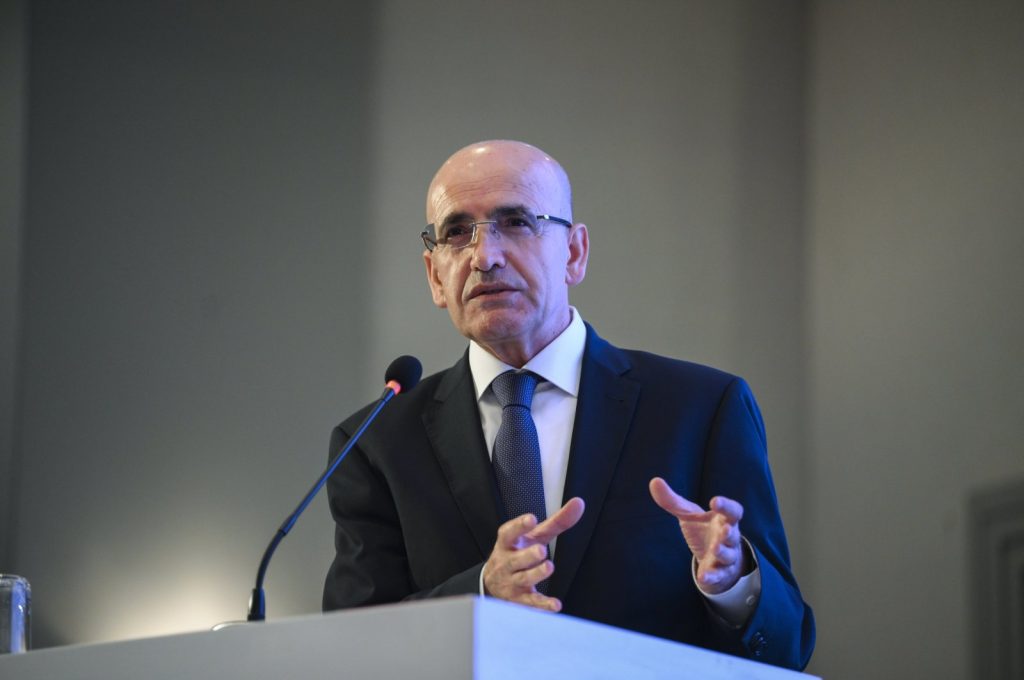The Turkish people are divided more than ever on Finance Minister Mehmet Şimşek’s economic policies these days, with discussions raging both on social media as well as on the streets.
With Şimşek’s appointment into the new Cabinet of President Recep Tayyip Erdoğan after the 2023 elections, the finance minister was perceived as a savior for the country’s worsening economy. Since 2018, the government has experienced several currency crises, the devaluation of the lira, purchasing power dying down and soaring inflation of over 75%.
Just a day before, Erdoğan, at his party’s parliamentary group meeting, said that inflation would fall. “We are aware of the burden caused by the high cost of living and inflation-related problems on society, especially on those who work on fixed wages. We will solve this problem not with populist policies that are of no benefit or even harmful to the country and nation but by ensuring a permanent increase in welfare. Now, with the closing of Parliament, I hope we will continue this summer with very intense work.”
Indeed, the country’s inflation is expected to fall from this month onward and see single digits in 2026.
However, the current discussions revolve rather around an upcoming tax package that Şimşek and his team are drafting. The package, which was presented to the president and will be submitted to the Parliament next month, has drawn the ire of the people with extensive new taxes to be implemented on almost all aspects of life. Examples are the increasing of a “tax to travel abroad,” already a fee that is highly contested, from TL 150 ($4.50) to TL 1,500 ($46.60) or TL 3,000 ($92), or taxing 20% of the rent money of landlords, removing special consumption tax exemptions for disabled people and rather providing cash support, or increasing the VAT on feed and fertilizer sales and making support payments to farmers instead. It should be noted that this information was leaked and may change in the officially announced package next month.
Still, as Turkish citizens struggle to go abroad with a devalued lira and visa crisis, a travel tax has caused a significant uproar. Similarly, as it has become impossible for middle-income families to buy their own house due to the crisis in real estate and as people are struggling to pay their rents, which is largely more than the minimum wage itself, a new tax for landlords on the rent is expected to indirectly cause an increase in rents even more.
Daily life for low-income and middle-income families has become a burden in today’s Türkiye. Şimşek’s package is thus widely viewed by these groups as loading the burden of the bad economy on the shoulders of low- and middle-income people.
Not only the ordinary citizen and the opposition but voices from the Justice and Development Party (AK Party) itself are being raised against Şimşek’s policies. The information on the tax package could have even been leaked by critics to gather public outrage and cause a change in the planned package. His policies and the state of the economy were also largely targeted as being one of the reasons the AK Party suffered significant losses in the March local elections.
“The program is working, the distance we have covered in our policy priorities shows that we are on the right track,” Şimşek wrote on social media last month. “We will continue the fiscal policy focused on spending discipline, savings, tax fairness and efficiency.”
An increase in the wages, which has been implemented in July in the past years, is also not expected this year, according to AK Party officials.
“We cannot make concessions to our goal on inflation,” Şimşek said on the issue, reflecting his determination on following the economic program.
Meanwhile, Türkiye’s economy expanded by 5.7% in the first quarter, official data showed, marking one of the world’s highest growth rates at the start of the year that matched market forecasts, driven by robust domestic demand despite tight monetary policy and confidence of international markets has increased.
Yet, this reality has not been mirrored in the prices of grocery stores and shops.
Şimşek is right in working on a package for tax regulations to increase efficiency and justice in taxes and reduce informality as unregistered income is high. His announcement to cut public spending on everything from foreign cars for the government fleet to construction of new government buildings has also been warmly welcomed. However, as Türkiye’s low- and middle-income groups are already struggling to make ends meet, new taxes that affect their everyday life are being criticized. The finance minister will walk a thin line between the expectation of fixing the economy and maintaining the complacency of the people.


